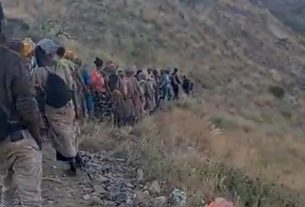Dar es Salaam / Nairobi – May 2025 — Tensions flared between Kenya and Tanzania over the weekend after the Tanzanian government expelled Kenyan human rights lawyer and political figure Martha Karua. The move came as Karua attempted to attend the treason trial of Tanzanian opposition leader Tundu Lissu, a prominent critic of President Samia Suluhu’s administration.
Karua, a former Kenyan minister of justice and 2022 presidential running mate, was detained at Julius Nyerere International Airport in Dar es Salaam on Sunday before being deported. While in detention, she posted on social media platform X that Tanzanian authorities offered no explanation for her arrest or subsequent expulsion.
The Law Society of Kenya (LSK), where Karua holds membership, strongly condemned the incident, describing it as an “illegal and arbitrary denial of entry.” The LSK argued that Tanzania’s actions contravened the Treaty for the Establishment of the East African Community (EAC), specifically Article 104, which guarantees the free movement of persons, labor, and services among member states.
“This decision undermines the spirit of regional integration and reflects the worsening state of constitutionalism, rule of law, and democracy in Tanzania,” the LSK said in a public statement.
Amnesty International Kenya echoed those concerns, asserting that Karua’s expulsion violates international human rights norms and erodes public trust in Tanzania’s judicial and electoral institutions. The organization urged authorities to allow Karua to monitor the trial, citing her role as a respected observer and advocate for democratic governance in the region.
Karua has been vocal in her criticism of what she terms “democratic backsliding” within the East African Community. Her expulsion comes amid heightened scrutiny of Tanzania’s handling of opposition politics and the ongoing prosecution of Tundu Lissu, a long-time government critic and leader of the opposition CHADEMA party.
Lissu, who survived an assassination attempt in 2017 and spent years in exile, returned to Tanzania to face charges widely seen by rights groups as politically motivated.
Observers warn that Tanzania’s treatment of regional civil society leaders and its clampdown on political opposition may further strain intra-EAC relations and undermine efforts toward democratic reform.
Source: Adapted from Jurist.com article by Bekim Bruka, JURIST Staff, United States.



